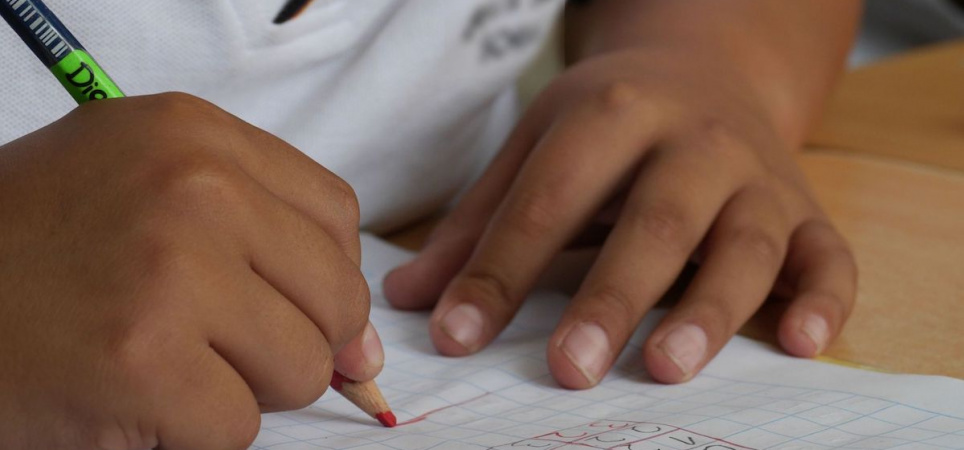Appropriate education raised unattainable expectations
Almost six years after the introduction of appropriate education, it is not possible to determine whether the support for pupils has improved. It is clear, however, that the radical system change has raised expectations about tailor-made assistance and more hands in the classroom. This picture emerges in an evaluation of five school years of appropriate education, carried out on behalf of the Ministry of Education.

Image: Pixabay
Appropriate education was introduced in August 2014 under the motto 'regular where possible, especially where necessary'. Now, 72 interim reports later, the final evaluation took stock.
Since its introduction, teachers have had little or no extra facilities to give practical support to students. At the same time, the researchers conclude that appropriate education has 'strictly speaking, had few direct consequences' for the actions of teachers in their daily practice. The fact that teachers experience more work pressure - and sometimes frustration - also has to do with other things, according to the researchers. 'There are indications, however, that the nature and complexity of the educational needs have changed: more often behavioral problems instead of – or in addition to – learning problems, and more often multiple problems.'
There are indications that the nature and complexity of educational needs have changed: more often behavioral problems instead of – or in addition to – learning disabilities, and more often multiple problems
Uit member polls of AOb shows that appropriate education has a major impact on classroom work. “Of course there are always more factors that determine the workload”, responds AObchairman Eugenie Stolk. “But teachers experience that since the introduction of appropriate education they have less control over the help they can offer and that they are by no means always able to give students the guidance they need. And that while the support itself is more intensive and requires more of you. ”
Registrations
After five years of appropriate education, not all pressing questions can be answered. School boards, for example, are happy with the increased freedom to make choices. 'It is not easy to determine whether that also means that the assistance offered is more tailored. This is because the target group for appropriate education is not defined and reliable registrations of pupils and students with extra support are lacking. '
Whether the money for student support ends up in the right place remains unclear. And it is not possible to say what a 'good approach' is for a successful implementation of appropriate education. The bottom line is that there are big differences between regional partnerships, and yes, a lot of other factors play a role as well.
For example, each partnership determines the basic support: the minimum support that students can expect. A quarter of the internal counselors and support coordinators indicate that their school has not yet succeeded in realizing this basic support. Moreover, there are differences between schools. 'Despite the joint agreements, one school appears to have a much broader view of basic support than the other school, also within the same partnership.'
Strained foot
This great freedom of policy is sometimes at odds with the need for clarity and direction, according to the evaluation. The Education Inspectorate pointed recently also on regional differences. The AOb has been calling for years for the basic level of support to be established nationally. It is one of the points that teachers and supporters themselves bring up (read all five points here).
“This basic care must be regulated by law,” says Stolk. “There is often a lack of clarity about the minimum support you can expect from the school. I understand that very well. This applies to parents and students, but teachers also need clarity. ”
Nevertheless, the researchers state that 'the system' has improved. Support for students is now better organized and more flexible. In one respect, the operation for the national government was successful anyway: the cabinet no longer has to worry about costs getting out of hand. The government has set a budget with which partnerships have to get rid of it. “This controls the costs for the national government, but locally people still have considerable difficulty from time to time to make ends meet and do the things they consider important for students,” said researcher Guuske Ledoux during the online presentation. this afternoon.
It is sad actually that you can conclude that the system has improved, but not whether the support for students has actually improved
That demarcated budget interfered with the high expectations of more tailor-made help for students and more help in the classroom for teachers. 'The suggestion that every teacher could count on more support in their own class ('more hands') was never realistic from a budgetary point of view. That has caused tension and frustration.'
Stolk: “It is actually sad that you can conclude that the system has improved, but not whether the support for students has actually improved. The system has become leading. It seems to me above all an extra signal that we really need to put the students and teachers first. ”


